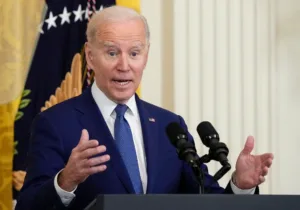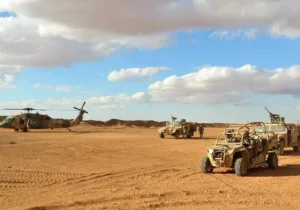A range of practical concerns arises when considering the proper approach for dealing with a regime that wants nuclear weapons, is a global funder of terror, and is an impediment to liberty and civility in the Middle East. When considering the morality of different foreign policies instead of focusing on pragmatism and strategy, the Iran problem may be more effectively broached. By focusing on the obvious and immediate moral consequences of the JCPOA versus Trump’s “maximum pressure” approach, though hawkish, the latter of the two appears to have a distinct advantage when assessing overall regional well-being.
Understanding The JCPOA
The Joint Comprehensive Plan of Action (JCPOA) was primarily implemented to move Iran into a normal state of global diplomacy by establishing a constructive relationship with the United States, the other P5+1 states (China, France, the United Kingdom, and Germany), and the European Union. This was attempted under the framework of a nuclear deal in which these states would supervise Iranian nuclear facilities and remove sanctions on Iran.
Now that the Biden administration is shifting America’s approach to Iran, new trends and arguments for why the US should reestablish its stake in the JCPOA may appear. As the president will probably not shift away from the JCPOA, Trump’s “no holds barred” approach to sanctions on Iran may become an increasingly difficult position to promote.
One of these trends is external pressure from China and Russia on the US, as these nations have strong economic and diplomatic relationships with Iran and are invested in its economic success, or at least the advancement of certain common goals. China, as the number one importer of Iranian oil, and Russia, which is a partner with Iran, have previously put pressure on the United States to stop its sanctions. Russia actively criticized the “maximum pressure” initiative and made it difficult for the International Atomic Energy Agency (IAEA) to investigate Iran’s nuclear program. Though it is difficult to know Russia’s motives, these actions should make individuals weary of the JCPOA. When considering the advantages of sanctions and how they help defund terror groups, no one should believe that such arguments based on human rights abuses would compel China or Russia.
Another argument could insist that the JCPOA may bring stability to the region. As Iran becomes more economically stable, it can effectively engage in its proxy governance through radical organizations and use diplomatic relationships to solve regional conflicts. Political pundits could tout this sort of argument and say that those who oppose the Iran nuclear deal aim to promote instability in the Middle East so that US operatives could take advantage of these volatile states. But the reality is that a more economically free Iran would cause further unrest in the region. Thus, this argument fails to express the upsetting moral reality of a successful Iran.
Trump and Maximum Pressure
On the other hand, the approach known as “maximum pressure,” which Donald Trump adopted, maintains strict economic sanctions that severely harm Iran’s GDP. Through hindering Iran’s geopolitical strength and economic power, many believe that they lessened and halted the expansion of Iran’s nuclear capabilities.
Through intense economic sanctions on Iran, the United States has substantially hindered Iran’s economic output and, by extension, its ability to fund terror. While sanctions harmed the well-being of Iranian citizens, they are a proportional response to the actions of the Iranian regime. For decades, Iran has financially backed terror cells and militia groups globally. The most notable of these groups is Hezbollah, a militant Islamic political party in Lebanon that has more military power than its own government.
In 2017, Iran gave Hezbollah $800 million to support political and military endeavors, and this was “a dramatic increase from the $200 million it was said to be giving its proxy when sanctions were in place.” After Trump reapplied sanctions against Iran in 2018, the regime cut Hezbollah’s funding to $700 million and has maintained this funding every year. Iran has also transferred hundreds of millions of dollars to Hamas in Palestine and other extremist groups in the Middle East. While the sanctions did not do enough to reduce Iran’s funding for these groups, the JCPOA greatly increased Iran’s economic output and ability to fund Hezbollah. So it thus appears plausible that a new phase of the JCPOA could lead to another increase in Iran’s terror funding.
During the Trump presidency, some questioned the JCPOA’s effectiveness and focused on Obama’s claim that, before the deal, “it would have taken Iran two to three months to break out with enough material to rush to a bomb,” and the United States had “now extended that breakout time to a year.” Under Trump’s presidency, Iran did restart the process of enriching uranium and is currently suspected to have enough for one bomb. But Daryl Kimball, executive director of the Arms Control Association, believes that Iran’s “actions and statements indicate they are not racing to build a nuclear weapon.” Rather, “they [were] retaliating in a measured way to the US reimposition of sanctions.” Though Iran could create a bomb, the nation postponed this endeavor because lifting sanctions would provide a greater benefit than rushing to a nuclear weapon, which would only alienate the country further. If Iran did develop a bomb, in almost all cases it would likely use the nuclear weapon as a deterrent against foreign meddling and a possible invasion, rather than deploying it militarily.
Either way, the critique that Donald Trump’s decision to withdraw the United States from the JCPOA in 2018 appears to hold little weight. Claiming that the reapplication of sanctions is merely a political move with highly dangerous consequences, while quoting Obama’s one year to proliferation claim, implies that the Iranian nuclear threat is imminent and active. But presently this seems contrary to Iranian motives.
The Morality of It All
This considered, outlining that Iran is currently not pursuing nuclear armament barely softens the knowledge that a violent and radical regime can attain an extraordinarily powerful weapon. As long as the current Iranian regime maintains power, it will move toward proliferation, and while it does so slowly and covertly, the JCPOA will not stop Iran’s otherwise continuous movement toward nuclear armament for the foreseeable future.
In this way, the JCPOA is like a Band-Aid over a broken arm, as it barely addresses the major issues of Iran. This leads to the reasonable question of whether or not stability in the Middle East is a worthwhile and moral endeavor if it is achieved through a regime that promotes terror, violence, and mass subjugation. It would appear that rather than stability, a substantial reduction in oppression and an increase in liberty in the region should be the end goal. How exactly this could be done has yet to be illuminated, but it is not through terror funding.
Overall, the factors surrounding this deal, while complicated, lead to a relatively simple conclusion. Iran, which is a state funder of terror in the Middle East, has more economic stability and capital to fund terrorist organizations when it endures fewer sanctions. If the priority is the mitigation of these organizations, which it should be in a moral context, then such sanctions should remain in place.






 Sponsor a student for Christianity & National Security 2024
Sponsor a student for Christianity & National Security 2024